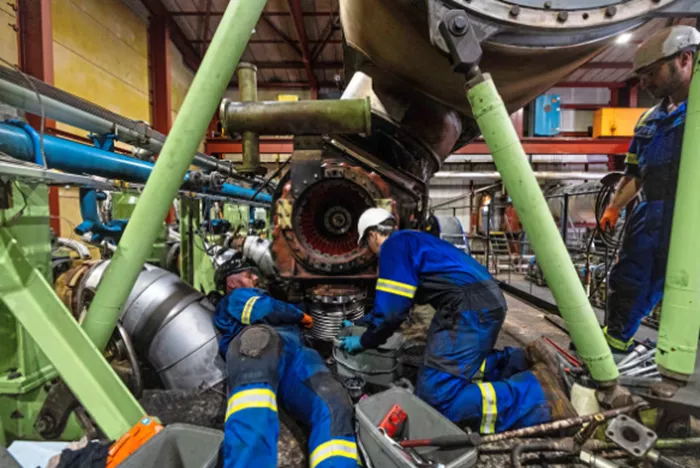In a significant legal setback for the Grain Belt Express (GBX) project, the Fifth District Appellate Court has overturned the Illinois Commerce Commission’s approval for a crucial permit. This decision halts the progress of the 800-mile high-voltage transmission line planned to traverse Pike, Greene, and Macoupin counties in Illinois, with potential implications for the state Supreme Court.
The Grain Belt Express, spearheaded by Chicago-based Invenergy, aims to transport renewable electricity from wind farms across Kansas, Missouri, and Illinois, eventually reaching just beyond the Indiana border. Proponents argue that the project is essential for enhancing regional renewable energy infrastructure and could deliver substantial savings to electricity consumers over the next 15 years.
Despite receiving permit approval from the Illinois Commerce Commission in March 2023, the project’s future now hangs in the balance following the appellate court’s ruling. Justice James Moore, delivering the court’s unanimous opinion, criticized the lack of financial evidence provided by GBX.
“There was insufficient evidence to support the commission’s conclusion that GBX has the financial capacity to complete the project,” Moore stated. He highlighted concerns over GBX’s lack of funding, customers, contracts, and commitments from financial institutions.
The case underscores contentious interpretations of the 2021 Climate and Equitable Jobs Act, which aims to reduce reliance on fossil fuels and eliminate greenhouse gas emissions from electricity generation by 2045. Critics argue that the appellate court’s ruling could have broader negative effects on other renewable energy projects.
Dia Kuykendall, Invenergy’s director of public affairs, condemned the decision, calling it a misinterpretation of the law and a threat to billions in potential energy savings. Kuykendall confirmed that Invenergy plans to appeal the ruling to the Illinois Supreme Court.
The ruling has faced criticism from various stakeholders, including the Illinois Manufacturers’ Association, Laborers’ International Union, and the Illinois Environmental Council. Samira Hanessian, energy policy director at the Illinois Environmental Council, emphasized the need for transmission infrastructure to support renewable energy advancements.
A recent U.S. Department of Energy study projects that the Midwest will need to more than double its high-voltage transmission line mileage by 2040 to meet growing electricity demands and increased renewable energy adoption.
This latest ruling echoes a 2015 decision that nearly derailed the project before its acquisition by Invenergy. The Illinois Farm Bureau, along with several landowner groups, has been a key opponent, arguing that the project lacks necessary wind farms and customer commitments, causing uncertainty for landowners.
Laura Harmon, associate counsel for the Illinois Farm Bureau, remarked that while the organization supports transmission projects backed by public utilities, the current proposal’s lack of foundational elements like wind farms and customers makes it problematic.
As the legal battle continues, the future of the Grain Belt Express and its potential benefits for renewable energy remain uncertain.
Related topics:
- Generac GP3300: A Comprehensive Review
- Yamaha EF3000iSEB Review
- Yamaha EF16000DE: Comprehensive Review and Expert Analysis

